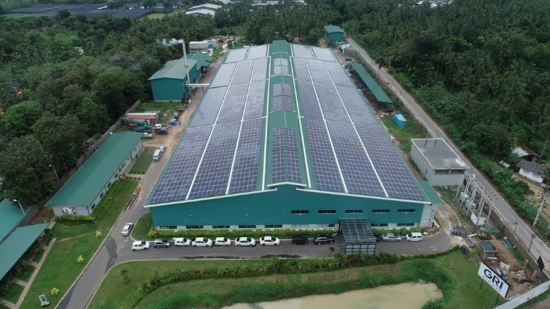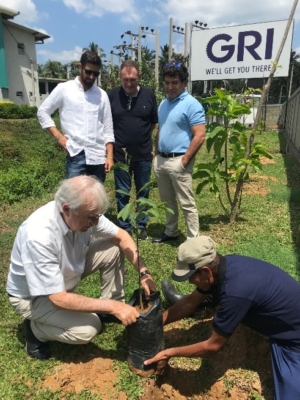GRI reiterates role of sustainability in a post-Covid world
 GRI has worked considerably to achieve greater sustainability at its facilities (Photo: GRI)
GRI has worked considerably to achieve greater sustainability at its facilities (Photo: GRI)
Global demand for natural rubber is outpacing supply, so stakeholders in the global tyre industry need to ensure sustainability is a guiding ethos in its operations, GRI states. The Sri Lankan manufacturer says sustainability in sourcing, production and disposal are key to its goals.
While natural rubber is a renewable commodity, in an industry where demand is disproportionately large, sustainability in sourcing is of foremost importance. GRI sources pure natural rubber from Sri Lankan farmers and plantations around the island nation. It supports and encourages local rubber farmers and smallholders through endeavours such as its recently launched GREEN X Circle, which is a sustainable circle of collaboration and connectivity. GRI ensures its commitment to sustainability and environmental protection in the way it develops new products, generates power, builds tires, recycles waste, and manages its water systems.
Visitors to GRI’s production plant are encouraged to plant a tree in the premises (Photo: GRI)
“The use of a biomass boiler instead of traditional furnace oil boilers ensures that we do not create a hazardous environment around our factory. As our production is an environmentally-friendly ‘dry’ process, there is no emission of gases or liquid disposal – this is a firm company mandate. There is also low material wastage in our production process,” notes Ananda Caldera, executive director of GRI.
“One of our tenets of sustainability is that we take care of the water, soil and air around us. This is the ethos that guides all aspects of our operations,” stated Shanaka Gunaratne, senior general manager of GRI. Shanaka explains that the GRI production plants also continuously fulfil all Central Environmental Authority (CEA) requirements. The company invests in new, energy-efficient machinery while ensuring noise and dust level compliance are observed. The GRI production plant also possesses one of the largest rooftop solar systems in Sri Lanka, with a capacity of 1,200kW and helps reduce over 1,100 metric tons of carbon emissions per annum.
Further, the company’s strict green policies on waste management have resulted in rainwater harvesting and an efficient wastewater management system. Customers who visit GRI’s production plant are encouraged to plant a tree in the premises while tree planting efforts are also encouraged within the larger community surrounding GRI.
“Pragathi – GRI’s in-house academy established within its compound – regularly trains employees on new energy management and sustainability practices to ensure that sustainability is a dynamic process and employees recognize its importance. Environmentally sustainable growth is our strategic goal, both now and for generations to come,” stated Dr Mahesha Ranasoma, CEO of GRI.
GRI is certified in ISO 9001:2015 – Quality Management, ISO 50001:2011 – Energy Management and ISO 14001:2004 Environmental Management.
Sustainability is no longer a peripheral issue and to work towards a sustainable future is to ensure an inclusive future for all. While Covid-19 has changed the way businesses operate, it remains more vital than ever to not lose sight of business sustainability goals in the face of new challenges, GRI concludes.


 BKT
BKT


Comments